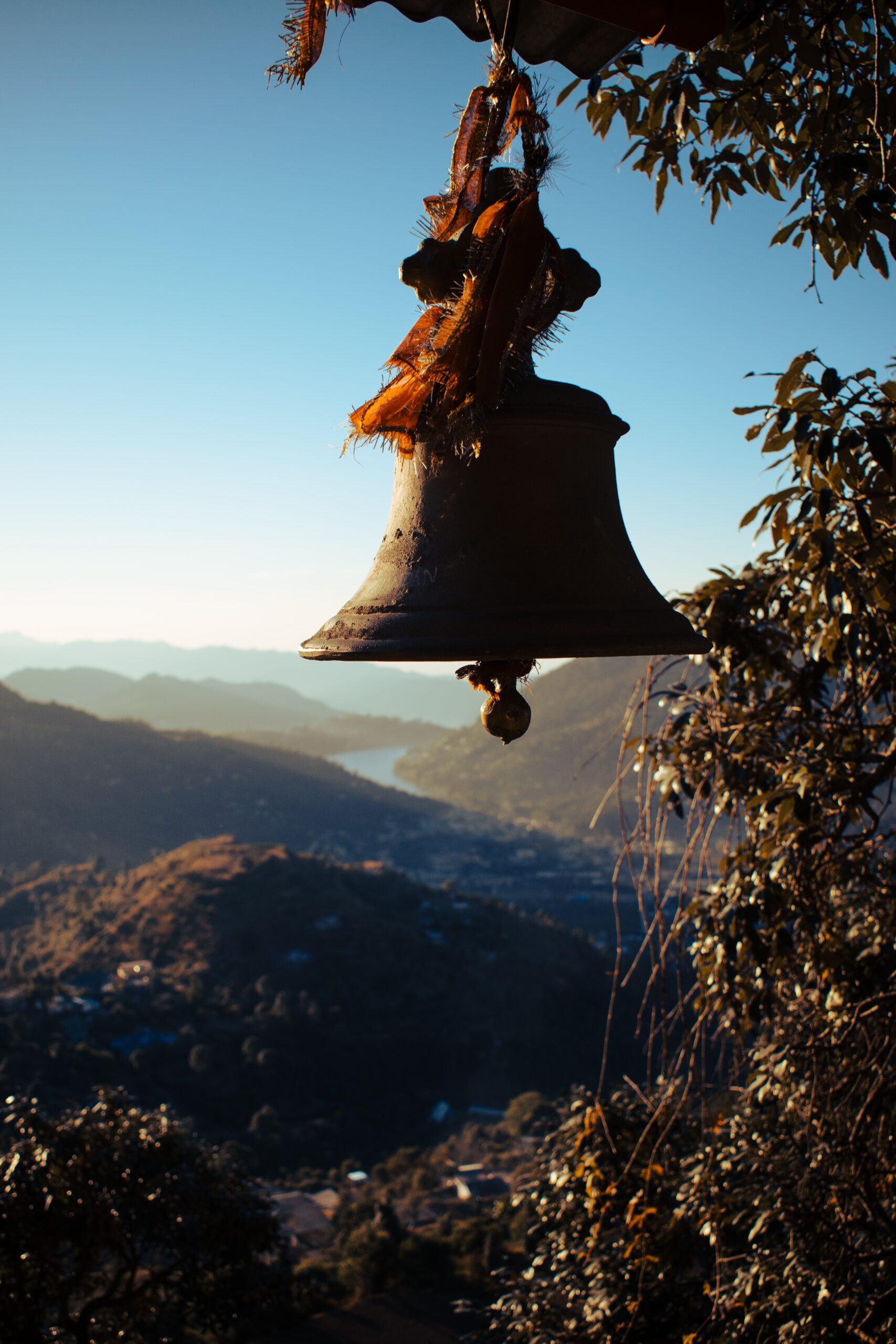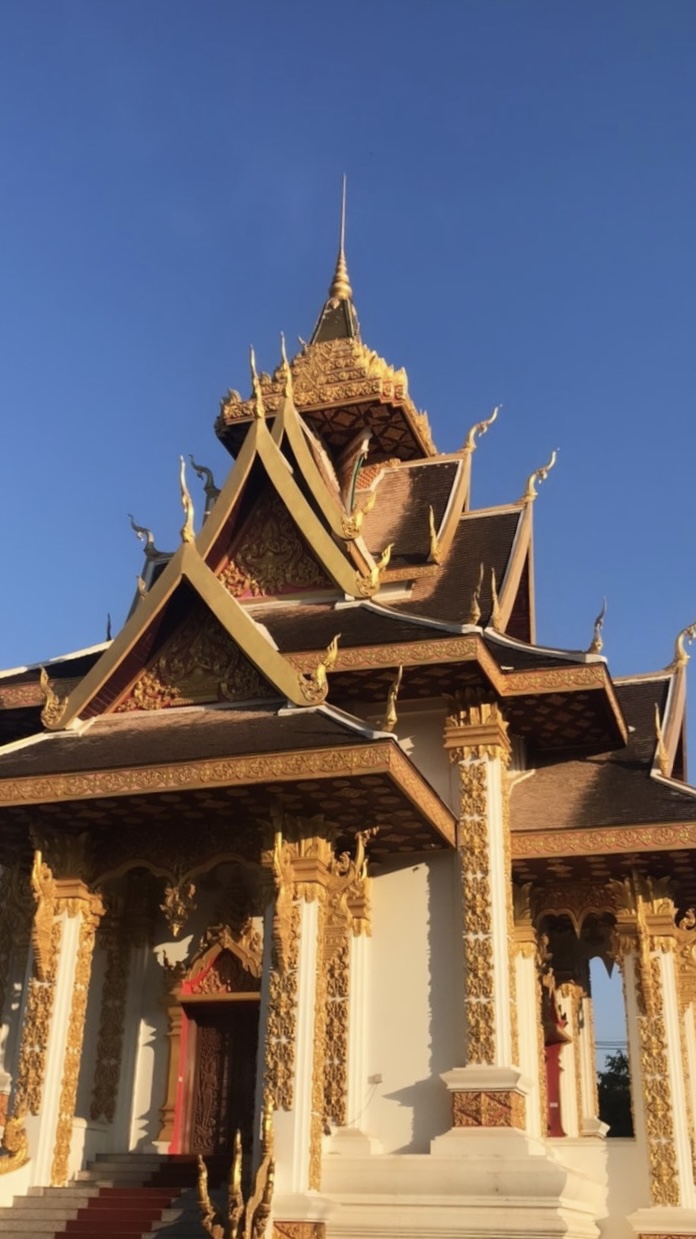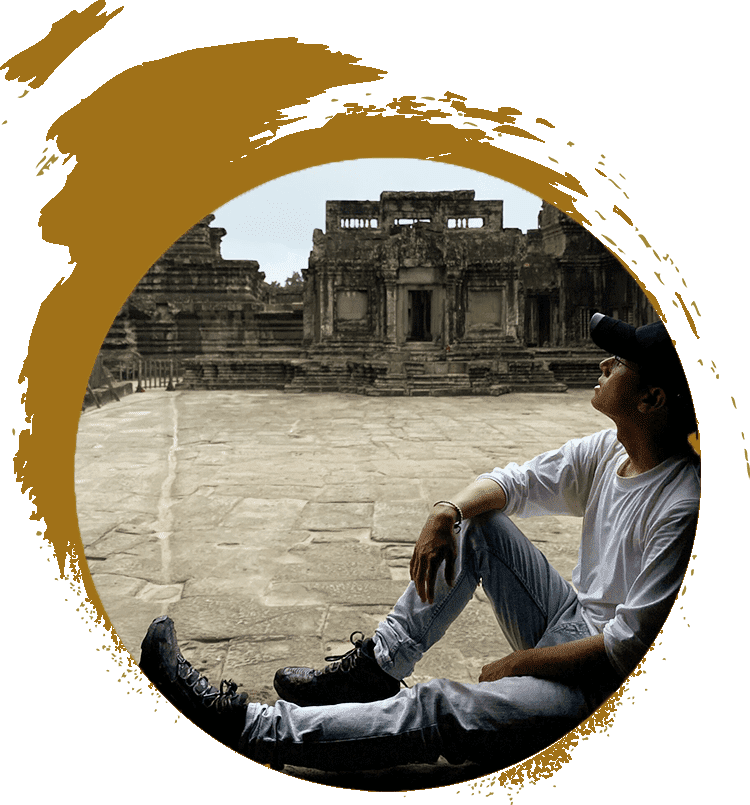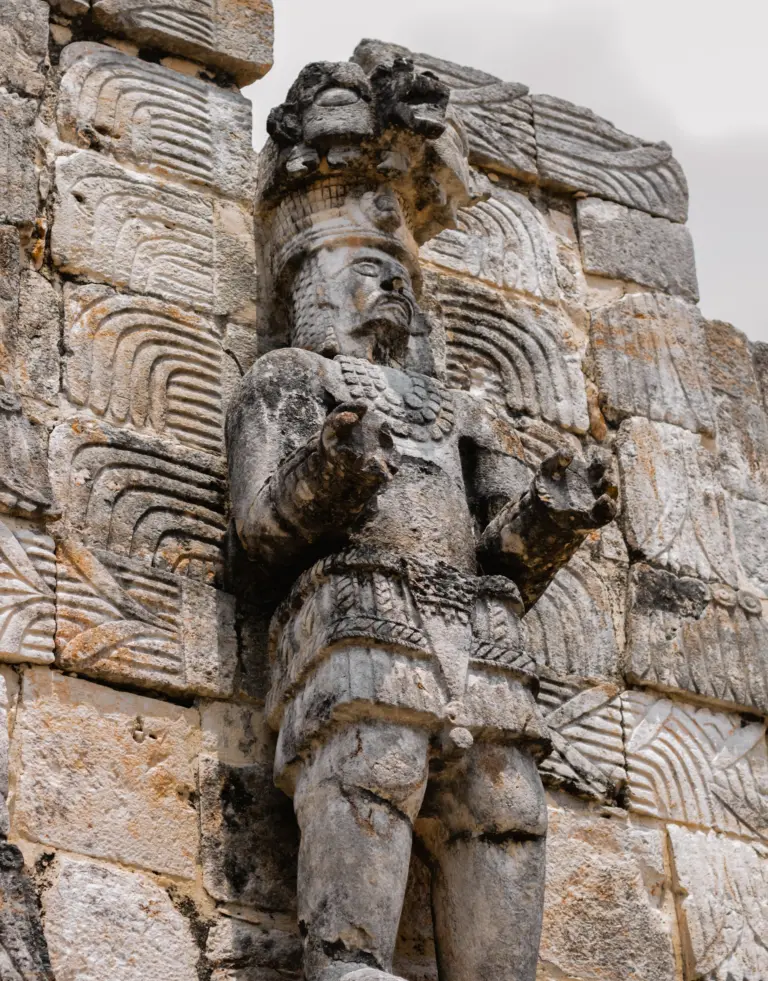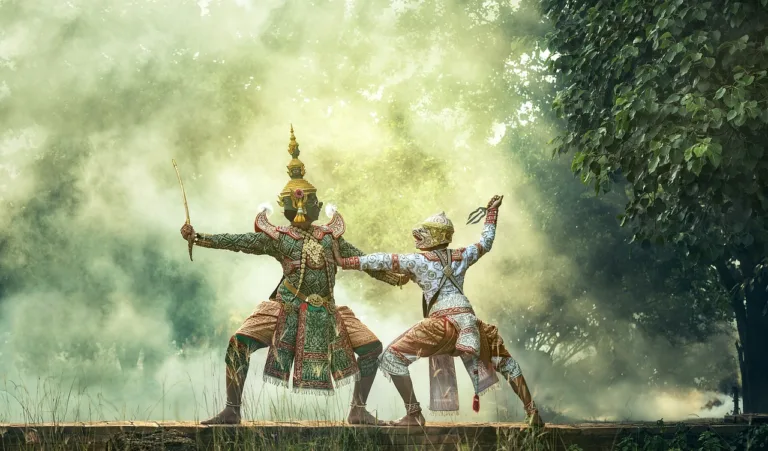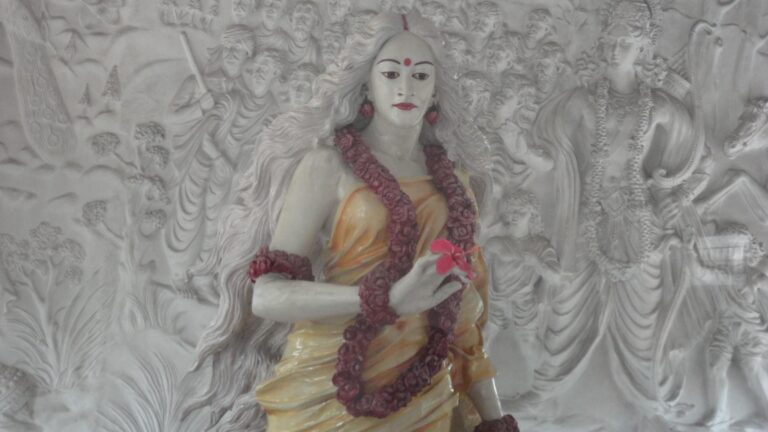Greece, a land where history whispers from every corner, has always stood as a beacon of cultural evolution.
From the iconic Parthenon’s marble steps to the bustling streets of modern Athens, the spirit of the Greeks weaves a tale of resilience, innovation, and unparalleled cultural contributions.
This article embarks on a journey to juxtapose two distinctive epochs of this civilization: the grandeur of Ancient Greek culture against the vibrancy of Modern Greek Culture.
Understanding the contrast and parallels between these two eras offers insights into how traditions evolve, how past philosophies influence present ideologies, and how a nation’s ancient soul can shape its contemporary identity.
Table of Contents
ToggleCultural Concepts in Greece

Philoxenia
Philoxenia, derived from the Greek words “philo” (meaning friendship) and “xenos” (stranger), translates to “friend of the stranger.”
Historically significant in ancient Greece, where hospitality was both a sacred duty, legends often emphasized its importance by suggesting that gods might disguise themselves as mortals to test human kindness.
While its roots trace back to ancient traditions, philoxenia’s essence remains vibrant in modern Greek culture. It reflects a broader Greek ethos of warmth, generosity, and a genuine openness to understanding and embracing those from different backgrounds and this is truly something I can attest to while I was traveling around Greece.
Philotimo
Philotimo is often considered one of the highest virtues in Greek culture, and it doesn’t have an exact translation in English, which speaks to its depth. Derived from the words “philo” (love) and “timi” (honor), it can be loosely translated to “love of honor.”
However, its essence goes beyond that.
Philotimo encompasses qualities like honor, dignity, and pride, especially in the way one relates to others. It’s about understanding one’s role in the community, showing respect, being empathetic, and going above and beyond for the sake of others. It’s the internal compass that prompts Greeks to act righteously, even when no one is watching.
Philotimo played a pivotal role in the social fabric of ancient Greek communities, ensuring harmonious coexistence and mutual respect. It was a guiding principle in interpersonal relationships, dictating that one should act with integrity, gratitude, and honor.
Today, philotimo remains deeply ingrained in the Greek psyche. It can be witnessed in acts of generosity, in the way Greeks might go out of their way to help a stranger, or in the deep sense of responsibility they feel towards their family and community.
It’s a lifestyle and a philosophy that, for many Greeks, defines the essence of being and belonging.

Arete
Arete is a term from ancient Greece that denotes excellence in any of its forms. Rooted deeply within Hellenic thought, it represents the fulfillment of one’s purpose, achieving the highest standard in any given activity.
In the context of ancient Greek heroes, arete often referred to martial prowess in battle. However, for the likes of philosophers such as Aristotle, it took on a broader meaning, encapsulating the idea of living up to one’s full potential in character and virtue. It meant living in accordance with one’s nature, fulfilling the potential that exists within.
In contemporary Greek culture, the Evzones, or the Presidential Guard, are a great representation of this ideal. With their rigorous training, impeccable discipline, and dedication to preserving and honoring Greek history and traditions, the Evzones exemplify modern-day arete. Their commitment to excellence, both in their ceremonial role and their representation of Greek national pride, embodies the timeless spirit of striving for the highest standards.
Kefi
Kefi is a uniquely Greek term that doesn’t have a direct translation in many languages. Kefi represents a spontaneous joy, enthusiasm, and spirit that is deeply embedded in Greek culture.
It’s the infectious zest for life, an unbridled passion, and an erupting energy that bubbles over in moments of celebration.
Historically, the Greeks have always been known for their celebratory nature, from the ancient Dionysian festivals to the spirited dances on the islands. Kefi is the term that encapsulates this innate Greek ability to find joy in the moment, to lose oneself in music, dance, or simply in the company of loved ones.
In the modern context, kefi continues to be a cornerstone of Greek life. It’s in the rhythms of Greek music, the laughter that fills the air, and the uninhibited dance moves. For many Greeks, kefi is not just a word; it’s a way of life, reminding us to embrace the joyous moments and to live with passion and heart.

Mati
The Mati, commonly known as the “Evil Eye,” is a concept that spans both ancient and modern Greek culture, though its belief and usage are prevalent in many cultures around the world.
In Greek culture, the Mati refers to a malevolent glare, believed to be cast out of envy, often unknowingly. People believe that receiving the evil eye can result in misfortune.
To counteract the effects of the Mati, people use blue and white eye-shaped talismans. These are often worn as jewelry or hung in homes.
The belief in the evil eye dates back to ancient Greece, where it was mentioned in various classic texts, and protective amulets similar to those used today were also prevalent.
The Mati remains a significant element even in modern day Greece. Blue and white eye-shaped charms can be found everywhere, from jewelry to pottery, and are commonly gifted to loved ones for protection.

Meraki
Meraki describes the act of doing something with utmost devotion, pouring one’s soul, creativity, and love into it. It’s about leaving a piece of yourself in your work, be it in art, cooking, music, or any task undertaken.
The concept can be traced back to artisans, craftsmen, and creators in ancient Greece who would dedicate themselves wholly to their craft, striving for perfection and aiming to imbue their work with a unique essence that was distinctly their own.
It’s the silent commitment and intimate connection between the creator and the task at hand. It reflects a deep, personal journey of giving one’s best, often going beyond the call of duty to achieve excellence.
In modern times, you can see meraki in the meticulous way a Greek grandmother prepares a family recipe, ensuring every detail is perfect even if it takes hours. It’s in the dedication of Greek musicians crafting melodies, or artists painting landscapes.
Meraki is the internal dedication to craft and creation, making each outcome a labor of love.
Greek Religion

Greek Mythology
In the ancient world, the Greek pantheon reigned supreme, with the gods and goddesses residing atop the sacred Mount Olympus, influencing the mortal realm in myriad ways. Led by the mighty Zeus, these deities, including Hera, Athena, Apollo, and Poseidon, among others, held dominion over various aspects of nature, human endeavors, and emotions.
Greek mythology is a filled with tales that explained natural phenomena, human behaviors, and the very fabric of the world. Heroes like Heracles, Odysseus, and Perseus embarked on epic quests, often intertwined with the Fates and wishes of the gods. Temples dedicated to different gods dotted the landscape, with the Oracle of Delphi standing as a spiritual nexus, where mortals sought divine guidance.

Greek Religion
The landscape of religious belief in modern Greece has undergone a profound transformation. Today, the predominant faith is Greek Orthodoxy, a branch of Eastern Orthodox Christianity. Rooted in ancient Christian traditions, it has been a cornerstone of Greek identity for centuries as seen in the cliff-perched monasteries in Meteora.
While the ancient gods no longer command worship, their tales remain woven into the cultural fabric. Many festivals, while Christian in nature, have elements that can trace their origins to pagan celebrations. But really, When does Religion become Mythology?
Greek Traditions
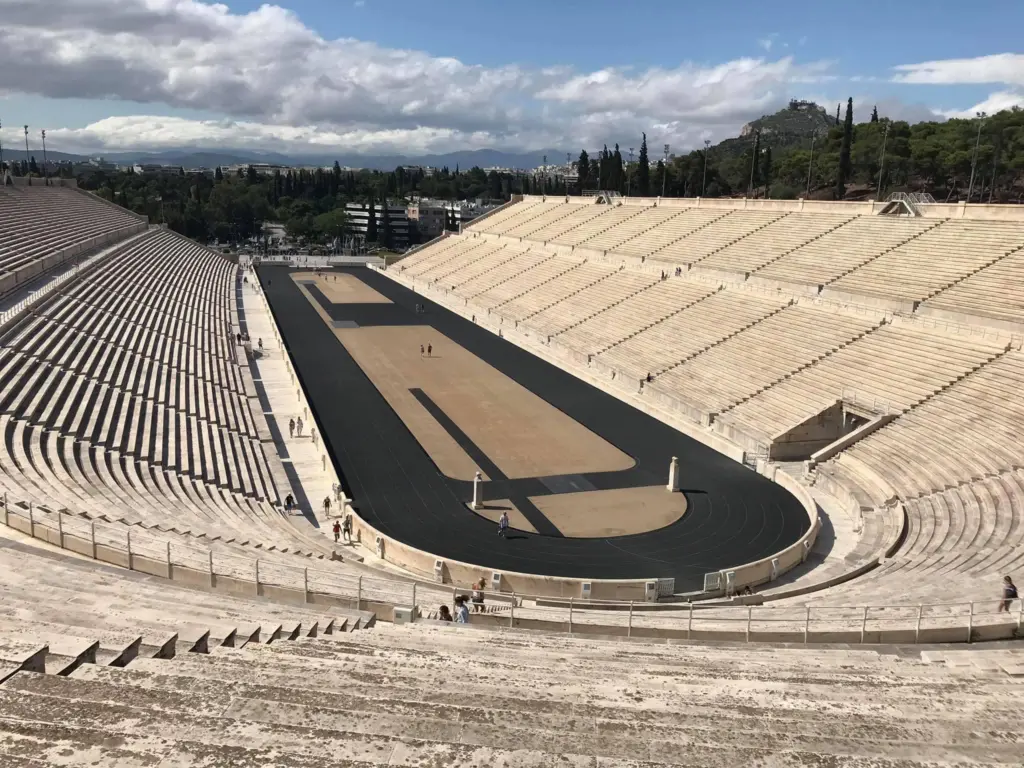
Ancient Greek Traditions
Symposium: In ancient Greece, the symposium was a gathering of men who would come together to drink, eat, and engage in philosophical discussions, poetry recitals, and music. This gathering was a very social and intellectual event.
Festivals: The ancient Greeks had numerous festivals like the Dionysia (honoring the god Dionysus with plays and songs), the Panathenaia (in honor of Athena), and the Olympic Games, a sporting event held every four years in Olympia.
Funerary Traditions: The Greeks believed in an afterlife. Funerals involved a procession, offerings, and sometimes, games or contests in honor of the deceased. Tombs were often visited, especially on certain days dedicated to the dead.

Modern Greek Traditions
Name Days: In modern Greece, Name Days (celebration of saints’ feast days) are of particular importance, often more so than birthdays. If a person is named after a saint, and that saint’s day arrives, it’s a day of celebration for them.
Easter: While many countries celebrate Easter, in Greece, it’s a major event marked by a week of festivities. It includes church attendance, fireworks, and the roasting of lamb. A special game using red-dyed eggs is also a hallmark of Greek Easter.
Plate Smashing: Often associated with Greek celebrations, the act of smashing plates is said to bring good luck and ward off evil spirits. While it’s not as prevalent as it once was, you can still encounter it at certain festive events such as the Greek Wedding Show in Santorini, specifically in Fira, the capital city of the famed island.
Engagement: It’s a custom in Greece for the soon-to-be groom to ask his bride’s father for permission to marry her. Even today, this tradition still holds.
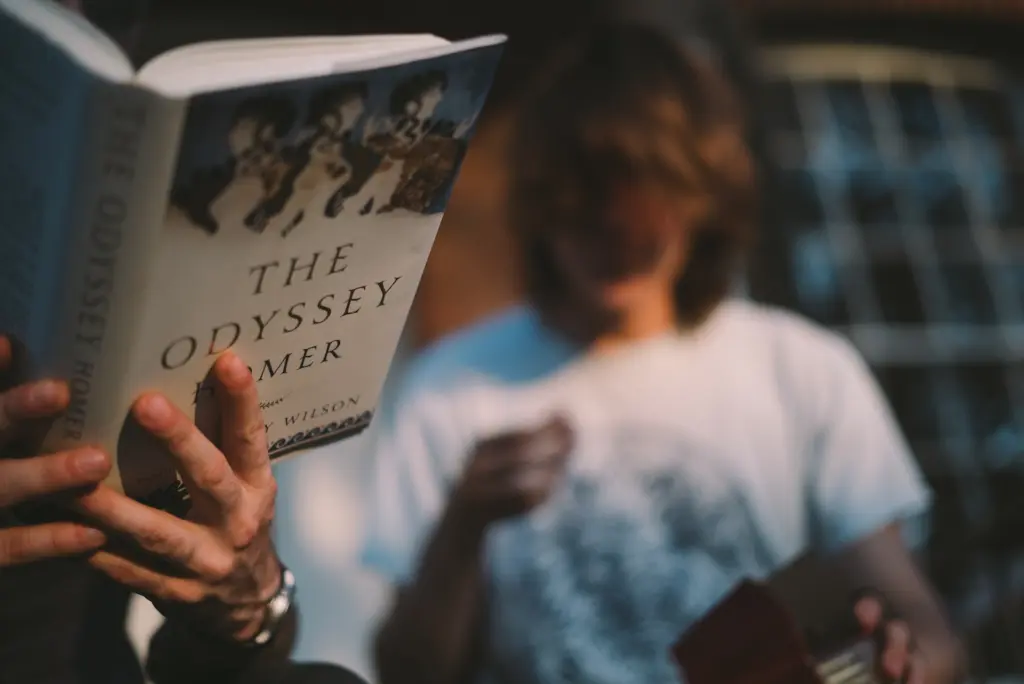
Greek Literature
Ancient Greek Literature
- Homer’s “Iliad” and “Odyssey” are monumental epics that delve into the heroism, honor, and the human condition.
- Playwrights like Aeschylus, Sophocles, and Euripides penned famous Greek tragedies that explored profound themes of fate, justice, and human frailty. Meanwhile, Aristophanes was a master of comedy, blending satire with humor to comment on societal issues.
- Historians like Herodotus and Thucydides pioneered narrative history, documenting the events of their times with a keen eye for detail and analysis.
Modern Greek Literature
- Nikos Kazantzakis, author of “Zorba the Greek” and “The Last Temptation”, is often hailed for his exploration of the Greek spirit, existentialism, and the clash between East and West.
- Odysseas Elytis and Giorgos Seferis, both Nobel laureates, are celebrated for their poetic works that capture the essence of the Greek landscape, history, and psyche.
- Cavafy, with his evocative poems, traverses themes of love, history, and the Hellenic identity with a unique blend of introspection and universality.

Greek Philosophy
Ancient Greek Philosophy
Ancient Greece gave birth to Western philosophy. Philosophers such as Socrates, Plato, and Aristotle grappled with fundamental questions about existence, knowledge, ethics, and the nature of reality. Their inquiries laid the groundwork for numerous fields, from metaphysics to epistemology and ethics. And who can forget the famous quotes of the Seven Sages of Greece? The ancient period saw the emergence of various philosophical schools, each with its distinct beliefs and practices:
- Stoicism (Epictetus, Seneca): Emphasized the importance of virtue and wisdom as the path to true happiness, advocating for acceptance of things we can’t change and focusing on one’s own behavior and reactions.
- Epicureanism (Epicurus): Believed that pleasure was the greatest good and advocated for a life of moderate pleasure to achieve tranquility and freedom from fear.
- Cynicism (Diogenes): Valued asceticism and believed that society’s conventions were at odds with a more natural way of living.
- Neoplatonism (Plotinus): Merged Plato’s ideas with spiritual and mystical thoughts, introducing abstract concepts about reality and the cosmos.
Modern Greek Philosophy
Modern Greek philosophy has been deeply influenced by European philosophical movements. Greek thinkers in the modern era have engaged with existentialism, Marxism, and postmodernism. Contemporary Greek philosophers have tackled topics like nationalism, cultural identity, and the challenges posed by globalization and technological advances.
- Cornelius Castoriadis: Known for his work on autonomy and the “imaginary institution of society”, Castoriadis explored the intersections between society, psychology, and philosophy, focusing on how societal structures are shaped by collective imaginations.
- Nikos Kazantzakis: While more renowned as a writer, his works grapple with existential themes, blending Christian, Buddhist, and Nietzschean ideas to ponder the human spirit’s resilience and quest for transcendence.
Plan Your Trip to Greece | Best Travel Resources
Book Your Accommodations
- Booking.com – the world’s leading online booking platform for accomodations around the world, they have an extensive amount of available listings with zero booking fees and best price guarantees.
- Hostelworld – a backpacker’s best friend, Hostelworld has the largest collection of hostels and guesthouses for affordable prices.
Don’t Forget Insurance
- SafetyWing – from Nomad Insurance, an insurance by nomads for nomads. They understand our lifestyle well and have really comprehensive and flexible plans that cater to any traveler.
Find Cheap Flights
- Kiwi.com – my go-to for booking and finding the cheapest flights and it’s helped me save tons of money. They do virtual interlining which is connecting flights from airlines that do not codeshare, so you can find routes that you wouldn’t be able to find normally.
Join Tours & Activities
- GetYourGuide – is one of the best places to find unique tours and activities. I found that it’s an excellent way to meet fellow travelers and create fond memories. They are not only limited to tours as they also offer niche services such as skip-the-line tickets or private transfers.
Catch a Ride
- Rentalcars.com – nothing beats the freedom of the road, Rentalcars.com is the world’s largest online car rental service. They operate across 160 countries so they’re the perfect partner to work with if you find yourself wanting a ride.

